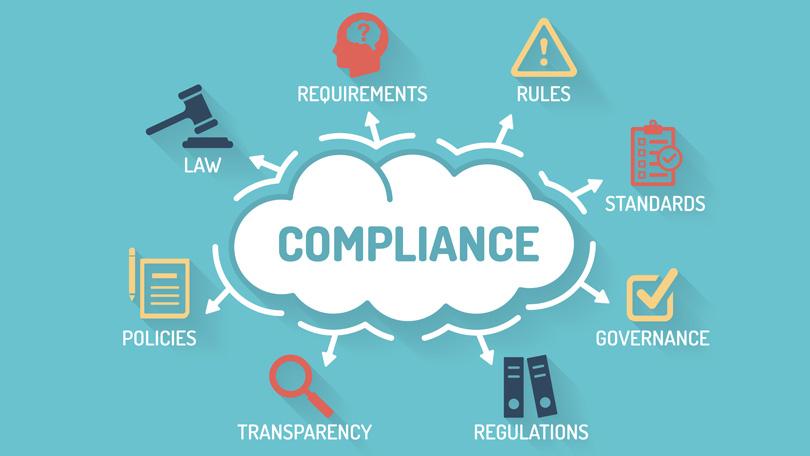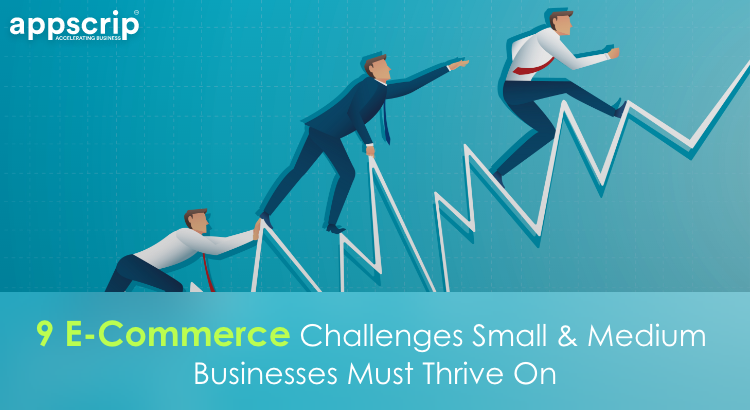Whether you’re thinking of starting a small business, or are in the initial years of operation, here are 9 common e-commerce challenges we all face.
1. Cyber-Security
Small businesses that focus their attention in the e-commerce space need policies and procedures to create a solid cyber-security framework for the organization.
In case of a cyber-attack, a small business cannot afford to have downtime in operations and sales, because every transaction is a marginal financial success that the business depends on.

Business owners need a cyber-security framework to keep data safe and secure while helping employees feel empowered to implement policies and tech to combat cyber-attacks.
They must have an incident response plan in place that establishes what to do in the event of a cyber-attack.
Having a response plan can help the business reduce downtime in operations and continue providing service to clients through other means.
Also Read | Business plan checklist : 8 Steps Startups Must Include for Success
2. Competition
You have to keep up with competitive pricing, products and service and can overcome price competition by having a clear company value proposition that consumers can’t get elsewhere.
This can be accomplished by making your website look professional and is optimized correctly to suit today’s Google algorithm. By providing a unique product or service, you can focus on a smaller demographic, making it easier for you to increase your domain authority.
3. Customer experience
In a world of instant gratification, customers expect instant customer service — and can take to the web to share their displeasure at less than satisfactory service just as quickly.
Figuring out how to offer your customers the same experience they would get in a brick-and-mortar store can be challenging.
One of the most overlooked areas of the customer experience in moving to e-commerce is pricing and customer segmentation. Customer experience is especially important when launching an e-commerce initiative, because customers expect to be treated as well or better online as they are face to face.
In an online world customers expect more. They already have knowledge about your products, prices, and competition. If they can’t get a certain price online, they get frustrated and purchase somewhere else.
Consistent and profitable pricing is a requirement these days for an e-commerce venture to succeed.
Must Read | What You Don’t Know About Video Analytics That Could Help Businesses
4. Quality website traffic and visitor conversion
Building, designing and running an e-commerce website is hard, but receiving quality converting traffic is even harder. The average conversion rates globally are < 3%, making driving relevant traffic to your site a sticking point.
To turn your traffic into converting customers, you must have a website that is modern, clean, user-friendly, trustworthy and virus-free.
Understanding your audience is crucial to designing a website that resonates with your audience.
Maximizing the content on your website through SEO is the next, and is the most important, step.

Extensive keyword research should be conducted to ensure you are optimizing your pages for relevant search terms. To score over competition use long tail keywords.
5. Visibility
If the company doesn’t show up on the first page of Google’s search results for relevant keywords, then it’s unlikely that prospective customers will find them. The best way to overcome this challenge is to invest in SEO. Companies must conduct keyword research, implement on- page SEO best practices and work on building high-authority back-links to their website.
Understanding your audience is key to figuring out which marketing channel will generate traffic that actually converts into sales.
Marketplace Buy & Sell | Proven Business Model To Launch a Top-Grade App
6. Regulation and compliance
As markets and technologies shift, so do rules and regulations. Depending on your industry, it can make much more sense to bring in a consultant to help with these areas rather than trying to understand the complexities yourself — and risk fines or worse for non-compliance.

7. Finding the right market
Product-market fit is the degree to which a product satisfies market demand. The first step is to find that fit quickly and build a product that solves a problem you have.
Initially make some assumptions as to what your target market is and running Facebook ads to this audience. When you finally make a sale, try and understand everything about who bought your product.
Once you have product-market fit figured out, then you can figure out the best way to reach your ideal customers.
8. Making/increasing sales
Once you have your products figured out, website setup and your marketing set, the next step is making sales.
To increase sales, SMBs need to have the right product at the right price. To drive sales, it’s important a brand endears themselves to their customers.
Your website plays a big part in how many sales you’ll make.
Ask yourself the following questions to determine the efficiency of your website:
- Is the website layout easy to navigate?
- Is the checkout experience simple and easy?
- Are there coupons that can be applied when customers send a certain amount to get a discount?
Website functionalities like these can greatly increase conversions and make the customer experience more enjoyable.
9. Uncertainty about the future
Being able to predict customer trends, market trends is vital to a changing economic climate. Bringing in a consultant trained in reading and predicting those all-important trends could be the difference between a bright future and a murky one.










